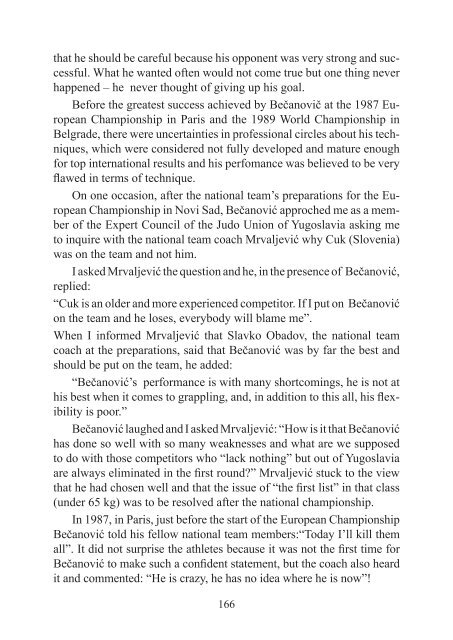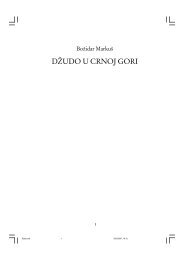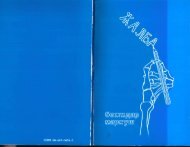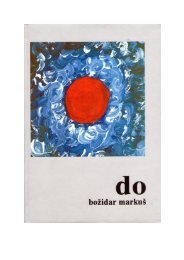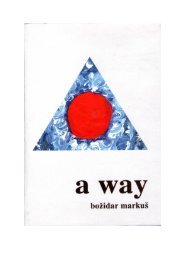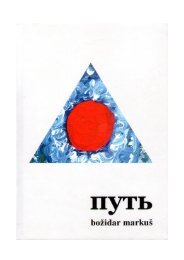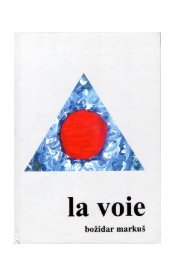Judo In Montenegro
Judo In Montenegro/Božidar Markuš
Judo In Montenegro/Božidar Markuš
You also want an ePaper? Increase the reach of your titles
YUMPU automatically turns print PDFs into web optimized ePapers that Google loves.
that he should be careful because his opponent was very strong and successful.<br />
What he wanted often would not come true but one thing never<br />
happened – he never thought of giving up his goal.<br />
Before the greatest success achieved by Bečanovič at the 1987 European<br />
Championship in Paris and the 1989 World Championship in<br />
Belgrade, there were uncertainties in professional circles about his techniques,<br />
which were considered not fully developed and mature enough<br />
for top international results and his perfomance was believed to be very<br />
flawed in terms of technique.<br />
On one occasion, after the national team’s preparations for the European<br />
Championship in Novi Sad, Bečanović approched me as a member<br />
of the Expert Council of the <strong>Judo</strong> Union of Yugoslavia asking me<br />
to inquire with the national team coach Mrvaljević why Cuk (Slovenia)<br />
was on the team and not him.<br />
I asked Mrvaljević the question and he, in the presence of Bečanović,<br />
replied:<br />
“Cuk is an older and more experienced competitor. If I put on Bečanović<br />
on the team and he loses, everybody will blame me”.<br />
When I informed Mrvaljević that Slavko Obadov, the national team<br />
coach at the preparations, said that Bečanović was by far the best and<br />
should be put on the team, he added:<br />
“Bečanović’s performance is with many shortcomings, he is not at<br />
his best when it comes to grappling, and, in addition to this all, his flexibility<br />
is poor.”<br />
Bečanović laughed and I asked Mrvaljević: “How is it that Bečanović<br />
has done so well with so many weaknesses and what are we supposed<br />
to do with those competitors who “lack nothing” but out of Yugoslavia<br />
are always eliminated in the first round?” Mrvaljević stuck to the view<br />
that he had chosen well and that the issue of “the first list” in that class<br />
(under 65 kg) was to be resolved after the national championship.<br />
<strong>In</strong> 1987, in Paris, just before the start of the European Championship<br />
Bečanović told his fellow national team members:“Today I’ll kill them<br />
all”. It did not surprise the athletes because it was not the first time for<br />
Bečanović to make such a confident statement, but the coach also heard<br />
it and commented: “He is crazy, he has no idea where he is now”!<br />
166


